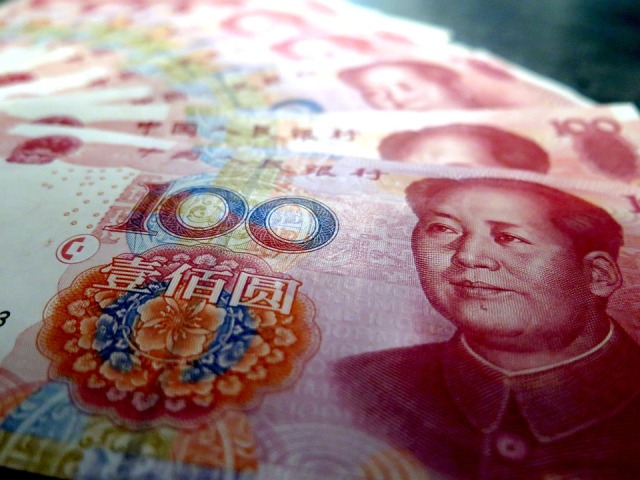Chinese currency steadies after turbulent trading

- Country:
- China
The Chinese currency steadied on Tuesday, a day after Beijing let the yuan weaken against the dollar, sending markets into freefall and leading the US to formally designate China a "currency manipulator". The US accusation on Monday was the second major escalation in the two countries' spiraling trade war in just 24 hours.
Both the onshore and offshore yuan breached the 7.0 level against the dollar, which investors see as a key threshold in the Chinese currency's value, and global equity markets tumbled amid fears of the escalating trade war between the two biggest economies. But forex trading on Tuesday was calmer, with the onshore yuan weakening 0.08 percent to 7.0512, and the offshore currency strengthening 0.24 percent to 7.0802 by late morning.
China's central bank weakened its central parity bank rate on Tuesday to the lowest level in more than 11 years, but by less than many analysts were expecting -- suggesting the bank does not want to let the currency move too much. "A more market-friendly China fix provided the first signal that the PBOC is having a second thought about weaponizing the yuan," said Stephen Innes, managing partner at VM Markets Pte Ltd Singapore.
"However, the fix is ambiguous enough to keep two-sided interest alive while still conveying a message to US trade hawks that in no uncertain terms will China be a pushover", he said. The yuan is not freely convertible and the Chinese government limits its movement against the US dollar to a two percent range on either side of a central parity rate that the People's Bank of China (PBOC) sets each day to reflect market trends and control volatility.
On Tuesday the midpoint rate was set at 6.9683. PBOC Governor Yi Gang insisted on Monday that China would not use currency devaluation in the trade war.
He said China would "abide by the spirit of the G20 leaders' summit" in June and not engage in competitive devaluation or use exchange rates to deal with problems such as trade disputes. The yuan's weakening came just days after the US announced plans to raise tariffs on another $300 billion in Chinese imports, accusing Beijing of failing to live up to commitments in trade negotiations.
That would make virtually all of the roughly $660 billion in goods traded annually between China and the United States subject to tariffs.
(This story has not been edited by Devdiscourse staff and is auto-generated from a syndicated feed.)
- READ MORE ON:
- Chinese
- Beijing
- central bank
- government
- Yi Gang
- partner
- PBOC
- analysts
- investors
- leaders
- Stephen Innes
ALSO READ
STL deepens partnership with Vocus for faster deployment of high-capacity networks in Australia
Sri Lanka expands partnerships with Somalia under “Look Africa” foreign policy
SJVN partners with IIT Patna for advanced geological models to cut cost overruns
MakeMyTrip, STB ink partnership to promote Singapore to Indian travellers
US, Britain announce partnership on AI safety, testing










